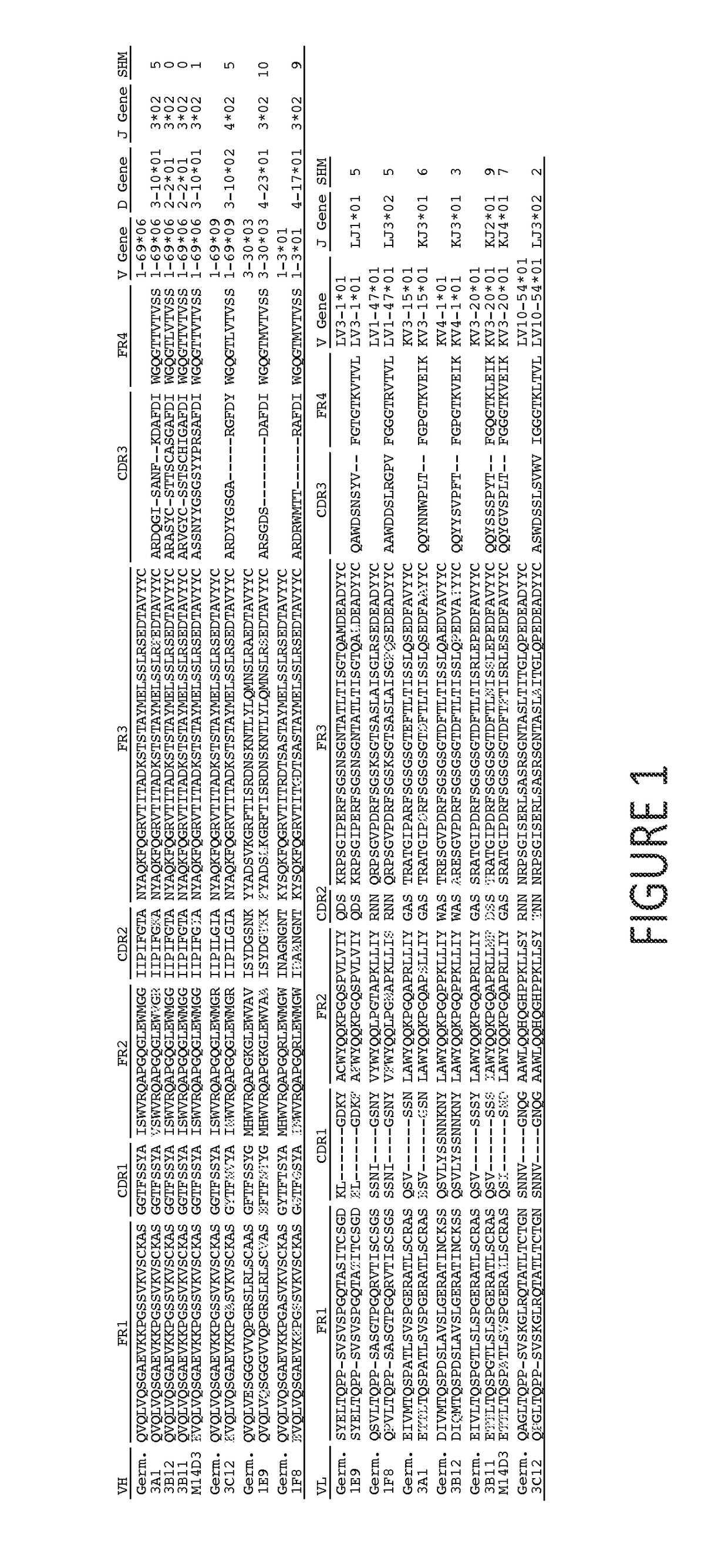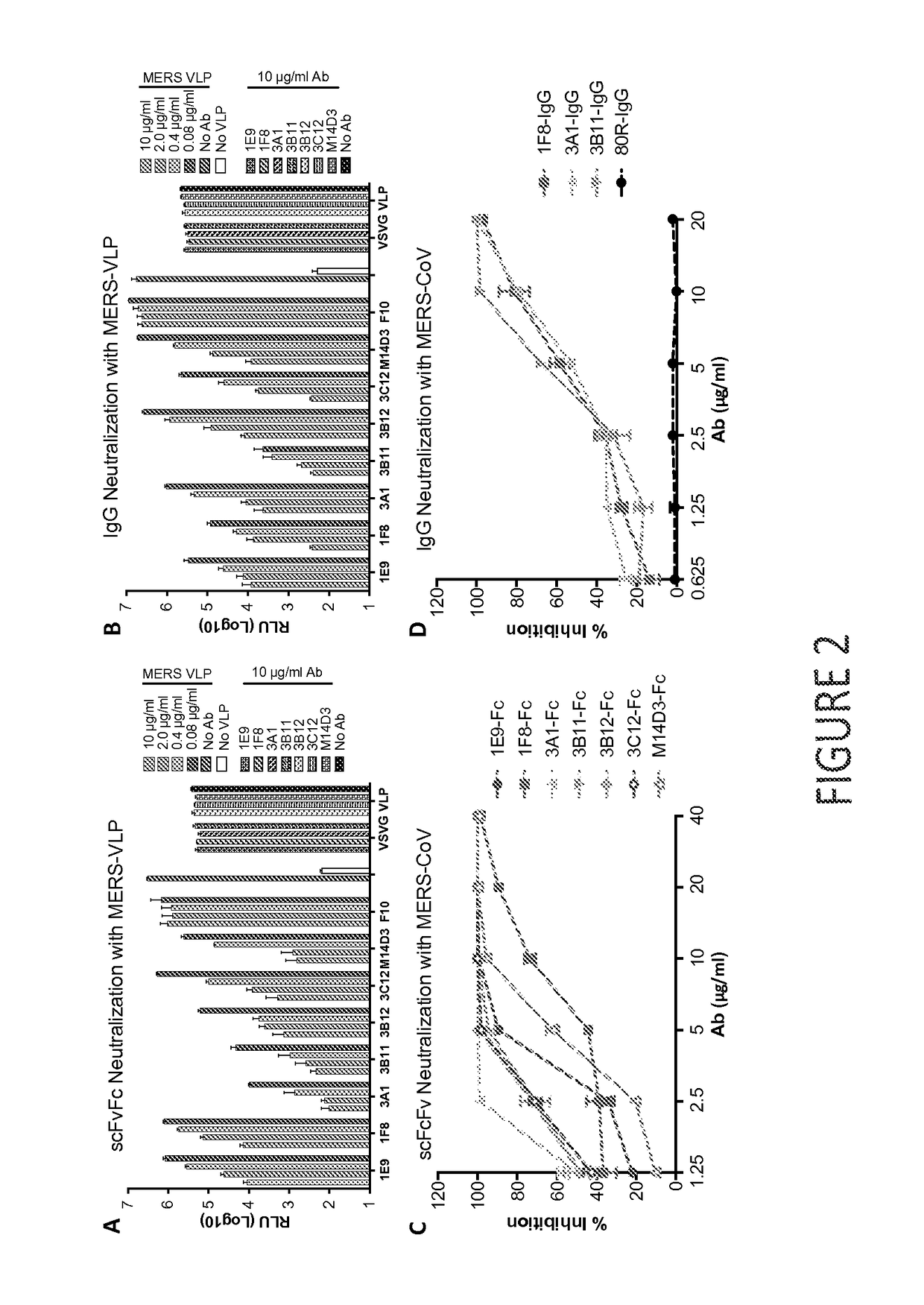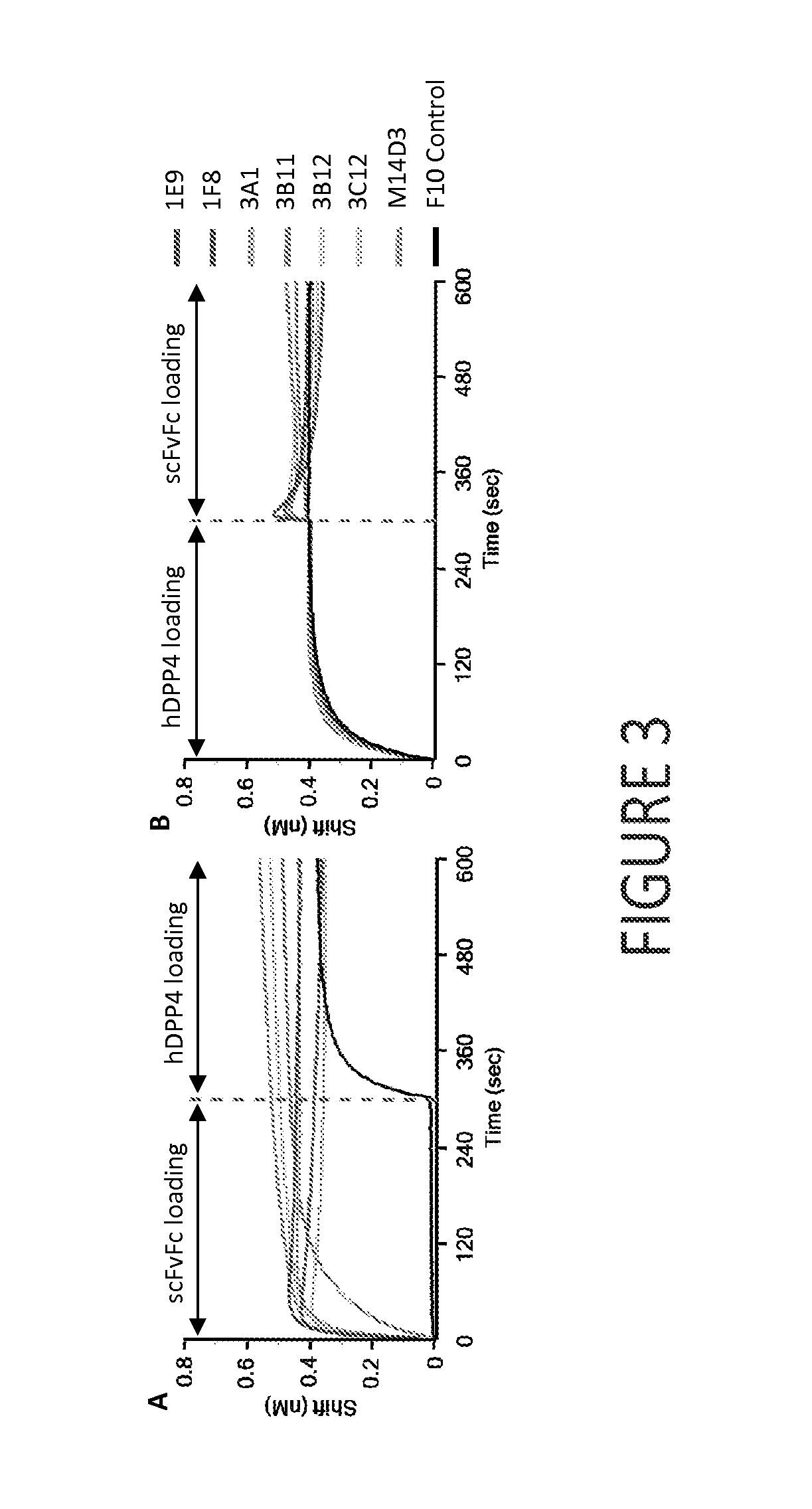Middle east respiratory syndrome coronavirus neutralizing antibodies and methods of use thereof
a technology of coronavirus and neutralizing antibodies, which is applied in the field of middle east respiratory syndrome coronavirus, can solve the problems of no licensed vaccines or antivirals available for the prevention or treatment of mers, and human studies have not been reported
- Summary
- Abstract
- Description
- Claims
- Application Information
AI Technical Summary
Benefits of technology
Problems solved by technology
Method used
Image
Examples
example 1
General Methods
[0169]Expression and Purification of the MERS-CoV Spike.
[0170]The MERS-CoV S gene (according to GenBank accession number: JX869059) was codon-optimized and synthesized for mammalian cell expression. The full-length spike with a Flag tag (DYKDDDDK) at its N terminus (between the signal peptide and the extracellular domain of the S protein) and a C9 tag (TETSQVAPA) at its C terminus was first cloned into the pcDNA3.1 vector. A series of constructs encoding different fragments of MERS-CoV spike protein were subsequently designed. Plasmids encoding MERS-CoV S protein residues 21-751, 752-1295, 21-358, 349-751, and 349-590 fused with the CD5 signal peptide and the constant region fragment of human IgG1 were named S1-hFc, S2-hFc, S1(21-358)-hFc, S1(349-571)-hFc, and S1(349-590)-hFc (RBD-hFc), respectively (FIG. 6). The latter three constructs also have Flag tags at their N terminui. Fc-tagged proteins were expressed from transiently transfected 293T cells and purified with ...
example 2
ation of Anti-Mers Spike Phage Abs by Sequential Spike-Containing Paramagnetic Proteoliposome (S-PMPL) and Spike-Expressing 293T Cell (S-293T) Panning
[0200]Purified S-PMPLs and S-293T cells were used to select Abs from the Mehta I / II non-immune human scFv-phage libraries. After two rounds of selection with S-PMPLs and one subsequent round of selection with S-293T cells, a total of 1344 clones were screened to verify their binding to S1-hFc and S2-hFc (FIG. 6) by enzyme-linked immunosorbent assay (ELISA) or meso-scale discovery (MSD). Seventy-nine clones were positive against S1-hFc, which accounted for all of the positive clones binding to S-293T cells, as confirmed by flow cytometric analysis. Further sequencing indicated that the 79 positive clones represented seven unique anti-S1 scFvs (1E9, 1F8, 3A1, 3B12, 3C12, 3B11, and M14D3). FIG. 1 shows the amino acid sequences of these clones. Three different VH and six different VL germline sequences are represented. Five of seven VH cha...
example 3
Epitope Mapping and Binding Competition
[0201]To more precisely delineate the S1 epitopes of these Abs, the S1 domain was expressed as three fragments: S1(21-358), S1(349-751), and S1(349-590) (FIG. 6). Each fragment was designed with an N-terminal Flag tag and C-terminal human Fc tag. Binding detection with Octet showed that all seven scFvFcs recognized S1(349-751)-hFc and S1(349-590)-hFc but not S1(21-358)-hFc (FIG. 7). These results demonstrate that the epitopes of all seven Abs lie within the 349-590 amino acid fragment of the S protein, which contains the RBD of MERS-CoV RBD (36).
[0202]To determine whether these Abs recognize different epitopes, binding competition assays were performed. An anti-Flag biosensor capturing S1(349-590)-hFc was initially saturated with one Ab, and additional binding with another Ab was evaluated. The results indicate that 1E9 can completely block the binding of 1F8 and 3A1 and partially block 3B12 and M14D3 but that it does not affect the additional ...
PUM
| Property | Measurement | Unit |
|---|---|---|
| Composition | aaaaa | aaaaa |
| Exposure limit | aaaaa | aaaaa |
Abstract
Description
Claims
Application Information
 Login to View More
Login to View More - R&D
- Intellectual Property
- Life Sciences
- Materials
- Tech Scout
- Unparalleled Data Quality
- Higher Quality Content
- 60% Fewer Hallucinations
Browse by: Latest US Patents, China's latest patents, Technical Efficacy Thesaurus, Application Domain, Technology Topic, Popular Technical Reports.
© 2025 PatSnap. All rights reserved.Legal|Privacy policy|Modern Slavery Act Transparency Statement|Sitemap|About US| Contact US: help@patsnap.com



